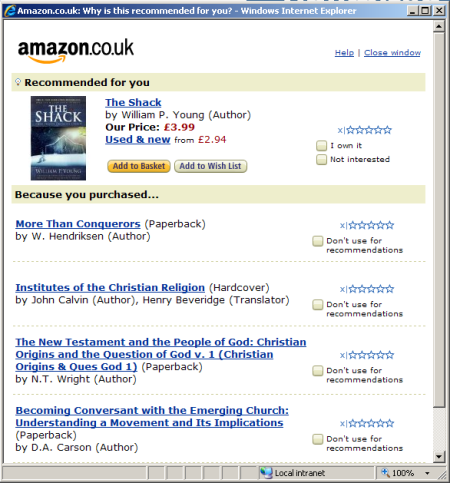Luke’s mention of a census (ἀπογραφὴ) around the time of Jesus’ birth has often been a problem when trying to date the birth of Jesus, so much that it has become a commonplace of popular as well as academic discussions of Jesus’ birth. Both Luke (1:5) and Matthew (2:1) put Jesus’ birth in the context of Herod’s reign, i.e. in or before 4 BCE, when Herod died. The problem then is that the only census we know about from extrabiblical sources that occurred under Quirinius happened in 6 CE (Josephus Ant. 17:342-44, 354; 18:1-10) – a full ten years later. So there’s a disparity here.
Some scholars suggest that the census was begun under another governor, and completed under Quirinius; that Qurinius was governor before 6 CE – possibly in 7/6 BCE – supported by the fact that we know from an inscription that an (unnamed) Roman citizen was a legate on two separate occasions, in Syria at least the second time. Or others have suggested that Luke 2:2 be translated “This was the registration before Quirinius was governor of Syria” rather than “This was the first registration…”. The Greek could mean this, but it is a bit forced. Or, as many scholars have found themselves having to do, we might say Luke has made a mistake here – even A.N. Sherwin-White, who reckoned Luke among the greatest ancient historians, thought he had erred with the date of the census (Roman Society and Roman Law in the New Testament, 1963, pp.162-171).
So has Luke made a mistake? Robert Stein (in Jesus the Messiah, 1996, p.55) suggests that we give Luke the benefit of the doubt, because he seems to be a very reliable historian on other matters. This is fair enough, although being right about a lot of other things doesn’t always mean one is right about a different issue (take pretty much every theologian who ever lived as an example!). But I think there is something else which I’ve not found mentioned in discussions of Luke’s dating of Jesus’ birth that suggests Luke does not think Jesus was born in 6 CE – his comment on the age of Jesus when he begins his ministry.
In Luke 3:23, Luke says that Jesus was “about thirty years old” (ὡσεὶ ἐτῶν τριάκοντα) when he began his ministry, which was during the ministry of John the Baptist – dated to between 25/26 and 29 CE by Luke 3:1-2, and about 28 CE by John 2:20 (see Stein, p.57; Bock, Studying the Historical Jesus, 2002, pp.71-75). If Luke had meant to imply Jesus was born in 6 CE at the time of Qurinius’ census (of which he is aware – Acts 5:37) then he would only be 22/23 at the oldest when he began his ministry, which is a bit too young to be described as “about thirty” (I’m 22 in 6 months!). If, on the other hand, Jesus was born in 7/6 BCE, he would be 33-35 when Luke and John say he began his ministry, which is close enough to thirty for Luke 3:23 to be a good description. So given that:
- Luke thinks Jesus was “about thirty” when he began his ministry, which is likely to be ~28 CE
- Luke also associates Jesus’ birth with the time of Herod (1:5) – before 4 BCE
- Luke knows about the 6 CE census (Acts 5:37)
- 22/23 is too young to be “about thirty”
… it is unlikely that Luke wants us to understand from his reference to the census that Jesus was born in 6 CE, assuming he can count. This might not get us much further, but I think it rules out that Luke has got it completely wrong. It certainly should rule out the common claim that “according to Luke’s gospel, Jesus was born in or around 6 CE” – Luke really can’t mean for us to understand this from his account.
As for the wider problem of the census… my hunch is that there may have been a different census, earlier, during Herod’s reign – although I have to admit we don’t have access to any records of this.



Barth on Christian Ethics: “You have been told, O man, what is good”
August 24, 2009“I admire the ethics of Christianity, and try to live by the moral teaching of Jesus, but I don’t believe he was the Son of God.” A common enough position, perhaps even still the default one for the English middle classes, but according to Swiss-German theologian Karl Barth, such a position doesn’t even make sense. Christian ethics are not detachable from the gospel, and from the history of God’s relation to humanity in Jesus Christ.
Perhaps the most concise statement of Barth’s position on Christian ethics (from a theologian not known for his brevity!) is his 1946 essay Christliche Ethik, republished and translated in God Here and Now (Abingdon, Oxon / New York: Routledge, 2003). First of all, Barth says that Christian ethics derive from God, not a human philosophy or world-view:
Such a position, Barth admits, does make Christian ethics confusing to non-Christians,
but Christians should not try and “evade” grounding their ethics in the gospel, and in God’s revelation. In seeking to evade this, they make their ethics sub-Christian, and they themselves become no longer willing to listen to God. If this is true, then the final grounding for Christian ethics will not be accepted by non-Christians. The answer to the question about if and why divorce is wrong must ultimately be “God forbids it” (c.f. Matthew 5:31-32) and not that it damages families and societal fabric. But is this all that can be said on Christian ethics? Has Barth set up a position vulnerable to that A-Level philosophy standby, the Euthyphro dilemma? Although Barth doesn’t explicitly interact with this objection, I think he circumvents it by his situating of Christian ethics with reference to God’s action in history – i.e., the gospel:
I can’t agree with the “all men by him” in a salvific sense, but, that aside, this is the history to which Christian ethics must relate. Ethics is, as Barth says, “the fruit that grows upon this tree” and cannot be understood if this history is omitted or mis-interpreted. It is from this vantage point that we can begin to define what “good” and “evil” are – and we find that they are not at all abstract, free-standing notions as Plato (and indeed, the Enlightenment!) thought they were.
It seems odd to define good and evil in Christian ethics without reference to love, but that is not really the case here. Ultimately defining the good as doing what is “loving” is unclear – what or who are we to love? All sorts of evil acts can be presented as loving by shifting the goalposts of who they are loving towards. The Scriptures specify the “what” and the “who” of love. We are to love God and our neighbour, according to the Bible; but… we know this by grace and are able to do it only by grace. Finally, thankfulness for grace produces love – knowing the gospel of salvation by grace leads us to perform the good. It is, incidentally, exactly the logic of Titus 1:2-4:
The gospel is the truth that leads to godliness. Paul, too, relates this to the “greatest drama ever played” of God’s plans for the world – giving good biblical warrant for Barth to proceed as he does.
Barth’s way of setting up Christian ethics seems to have a number of attractions. It seems to be biblical; it avoids the vagueness of unqualified reference to “love” and at the same time does not make God vulnerable to a caricature of an arbitrary dictator – God’s character revealed in the gospel, his plans for his creation revealed in the gospel, and his grace to us revealed in the gospel all underpin the idea of listening to, repeating, and obeying God’s commandment. The Bible is not a law-book, but rather tells us the gospel which produces the fruit of Christian ethics in the lives it transforms.
What, then, of the fact that Barth makes Christian ethics unintelligible to those outside the Church? How now will the Church persuade those outside to behave morally? The answer is – she can’t; at least, not so far as those outside remain outside. If the gospel is the tree on which Christian ethics grows as fruit, we cannot expect to find it growing on different trees. Instead of urging non-Christians to behave as if they were Christians, perhaps it would be better to urge them to become Christians – for only then, if Barth is correct here, can they understand, affirm and practise Christian ethics.
Tags:Christianity, ethics, gospel, grace, Karl Barth, morality, Titus
Posted in Comment, Theology | Leave a Comment »